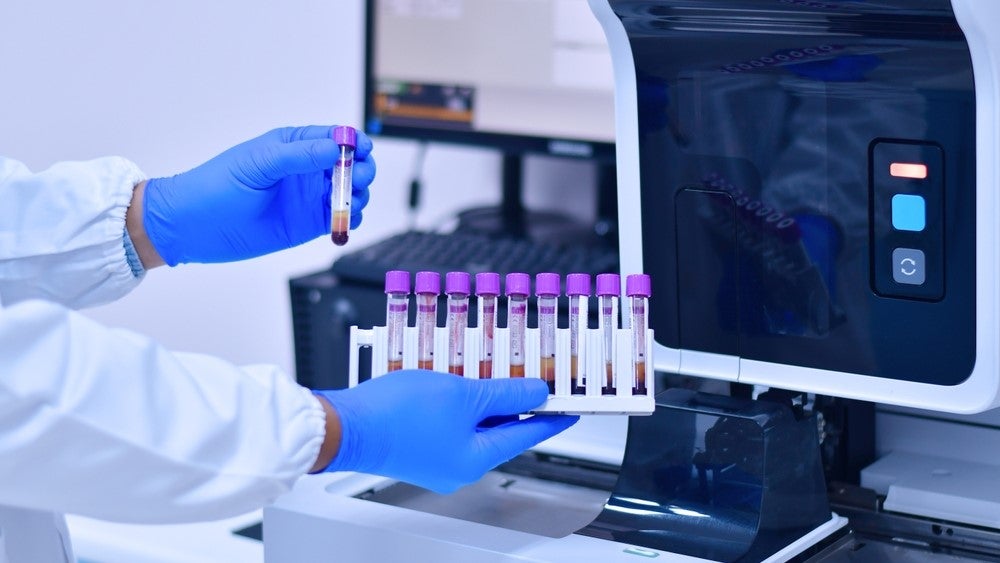
Ad Astra Diagnostics has received 510(k) clearance from the US Food and Drug Administration (FDA) for its point-of-care QScout rapid-result haematology system.
The results generated by the QScout system include white blood cell counts (WBCs) and neutrophil-to-lymphocyte ratio, as well as differentiate the number and per cent of five types of mature WBCs, along with immature granulocytes (IGs).
These blood counts can be used to inform the diagnosis of various diseases, including infection, leukaemia, and other blood-related cancers. Furthermore, elevated levels of IGs can be used to differentiate sepsis.
The use of point-of-care diagnostics has increased following the Covid-19 pandemic. The global market for haematology analysers is forecasted to be worth approximately $2.1bn in 2030, as per a GlobalData market model.
The whole blood is added to QScout to run the test, which contains a dried reagent that stains cells. When the test is inserted in the QScout analyser, an optical system takes images, and an algorithm identifies the cells in real-time, with results displayed in about two minutes.
The QScout has been developed with seed funding from the US Biomedical Advanced Research and Development Authority (BARDA), which is a part of Administration for Strategic Preparedness and Response within the US Department of Health and Human Services.
Access the most comprehensive Company Profiles
on the market, powered by GlobalData. Save hours of research. Gain competitive edge.

Company Profile – free
sample
Your download email will arrive shortly
We are confident about the
unique
quality of our Company Profiles. However, we want you to make the most
beneficial
decision for your business, so we offer a free sample that you can download by
submitting the below form
By GlobalData
In August, BARDA awarded a contract to Satio to develop a new single-use and patch-based ebolavirus diagnostic. The diagnostic will integrate the patch-based blood collection device of Satio with the Institut Pasteur de Dakar’s sensitive ebolavirus immunoassay within a single device.
In other blood test development news, Jana Care raised $6m in the Series B financing round to complete the commercialisation of its self-administered blood tests for kidney and heart disease last month. In August, Nightingale Health introduced a remote blood collection kit for its medical research and clinical trial customers. The Nightingale kit and self-collection device would allow trial participants to draw their blood samples from a finger-prick.

Sign up for our daily news round-up!
Give your business an edge with our leading industry insights.
